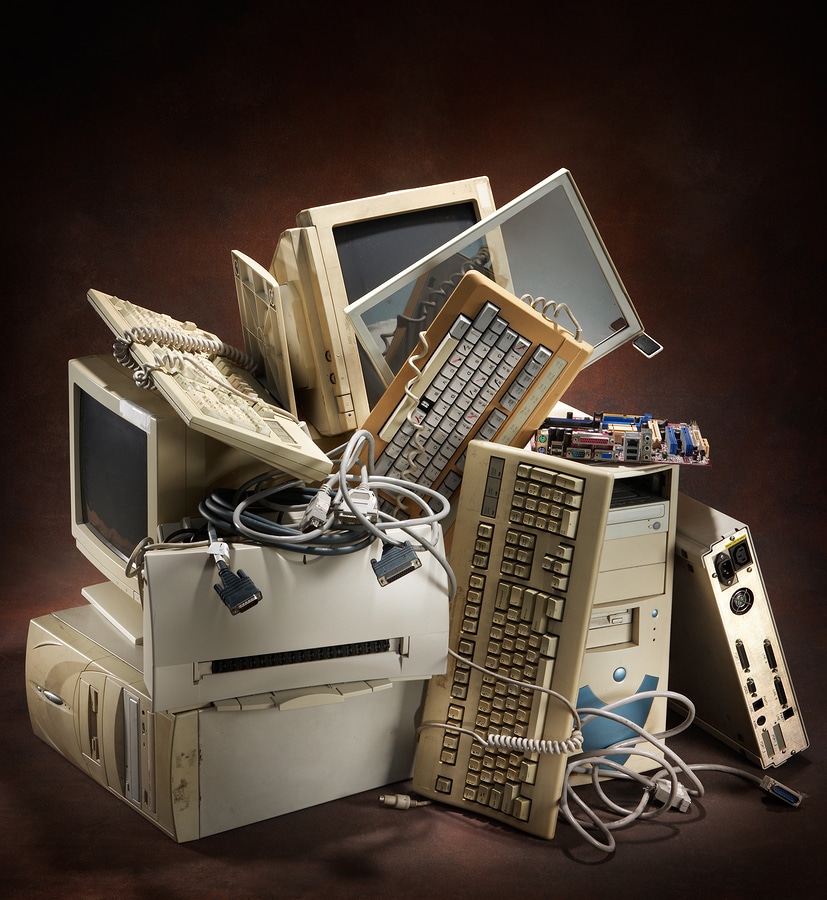Best Practices for Disposing of Old Computers and Other Company Hardware

Doing away with computer equipment is not the same as upgrading office furnishings or purchasing new office supplies. You can’t just throw out the old stuff when you replace it with newer models. This is because computer hardware contains sensitive data that could compromise the privacy of customers, employees, partners, and more if it falls into the wrong hands.
Businesses have to take special care when it comes to IT asset disposition (ITAD), including the disposal of outdated servers, computers, laptops, tablets, cell phones, and any digital devices that could contain sensitive data. Along these lines, you’ll have to develop best practices and procedures for your company to ensure compliance and minimize risks for data theft throughout the disposal process. Here are a few guidelines to follow.
Monitor, Maintain, Backup
If you don’t already have a system in place for monitoring, maintenance, and backup, you’ll definitely want to get one going before you undertake any hardware upgrades. With the right monitoring systems in place, you have the best opportunity to catch breaches before any damage is done, and regular maintenance, including updates to software and firmware, delivers the most current protections against viruses and other system intrusions.
As for backups, you should perform frequent system backups so that you have a recent restore point in case of disasters like power outages or ransomware lockouts. With such policies and procedures already in place prior to equipment upgrades, you should be in a position to seamlessly transfer data to new devices, with a backup plan in place, just in case.
Shred Hard Drives
When it comes to ITAD planning, you may find it difficult to keep up with the changing landscape of laws related to consumer privacy protections. With federal, state, local, and industry-related rules and regulations to contend with, and more being added all the time, you might worry about your ability to remain in compliance.
If you’re fearful of data breaches and the many repercussions you’ll face in such situations, your best bet is to partner with a reputable and certified ITAD service provider to shred hard drives for you. With chain-of-custody tracking, 24/7 portal access for transparency, and certificates of destruction and recycling as proof of shredding, you can reduce liability and enjoy peace of mind.
Consider Refurbishment and Resale
For many companies, balancing security and expense can be a tricky maneuver. With a trusted ITAD partner by your side, you can accomplish both goals more easily. Instead of shredding old hardware, you might want to consider having it thoroughly wiped and refurbished for resale. This can help you to recoup some of the cost of upgrading technology even as you comply with all applicable privacy laws.
Partner with Professionals
There are many reasons to turn to a third party when it comes to IT asset disposition, from complying with rules and regulations, to protecting customers and employees, to meeting standards for e-waste recycling. When it comes to best practices for disposing of old computers and other hardware, partnering with an expert, certified ITAD service provider like SEAM is ideal. Businesses operating in and around Sioux Falls, SD can get started by contacting SEAM at 605-274-SEAM (7326) now to learn more.
SEAM provides IT recycling and data destruction services including onsite shredding and hard drive wiping to South Dakota, North Dakota, Minnesota, Iowa, and Nebraska.
Schedule a pickup or contact us for more information.





